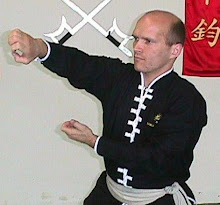This is a longer blog than I feel a blog should be but this is also a very important topic and I want to spend sufficient time to give you as much as I can so that you can make a better choice.
Every trainer claims to be the best. How do you choose one who knows what to do and applies that in his training. If you don't know about fitness, how do you know if the trainer does?
There are some things that you can look for to give you a better idea who you should choose.
Does the trainer have certification? This doesn't guarantee that they apply what they know but it gives you an idea that they should know what they are doing.
Does the trainer have a degree in exercise physiology or kinesiology?
How long have they been a trainer?
Are they or have they been an athlete? Careful here since I have seen many athletes who don't know there stuff or just don't know how to train. I do feel that your trainer should be someone that has been or is still an athlete since they will know what and how things should feel. When I tested for my certification I couldn't believe how many people were getting certified who had just started working out, learned that they liked it and decided that they wanted to train others. This isn't a 'bad' thing, they mean well, but just won't have the idea as to what you might expect when you train since they haven't been there.
Client references?
Once you get past these initial checks you should schedule to meet with the trainer and, if they do this, a trial session. This is really the time to find out if they are for you. Chemistry between you and the trainer will be almost as important as their ability.
There are certain fundamental rules in training that if your trainer doesn't follow them, you should just stop right there;
Does he instruct you in HOW to do the exercise mechanically? I don't just mean show you the exercise but describe why, what is working and how? A good one to catch many trainers with is the act of placing the tip of your tongue on the roof of your mouth during exercises, especially abdominals/core work. Many trainers aren't aware of how important this is to your stability!
Does he watch you do the exercise? I have seen many trainers who just look around and don't focus on you. Funny as it seems I have seen some texting while training. I also don't like trainers who take on two or more clients at a time unless they are veteran clients.
Follow the basic rule of largest muscle to smallest muscle in training. You should always train from your legs to either your back or chest to arms then abs!!! If you work your abs, which are your core support for all other exercise, first then you are at a much greater risk of injury due to the 'weakest link' concept.
How often does the trainer change the routine? The concept of periodization is important in training. As your muscles adapt to an exercise they will plateau in development and then you should change your routine. For sports it is also important for in-season and off-season training so that you don't burn out during the season. But I see many trainers changing the routine every time. It is called a routine for a reason. You can do some different exercises with each session but nothing so drastic that you can't measure your progress. If you are building your strength portion and do squats, you should do them regularly (once or twice per week) for the period (about 6-8 weeks). Then you can change to a more complex movement. Doing totally different exercise every time might keep it more interesting but doesn't allow for your body to grow into the program and develop the skills. When you learned to play an instrument you didn't change from piano to guitar to drums to violin to flute every time?
Do the exercises progress from stability to strength to movement to function to plyometrics? Do the exercises make sense? Many trainers are using highly advanced exercises for clients before they have even evaluated the clients' level/ability. Plyometrics aren't for a beginner. The progression of exercise is one that develops a base of strength then control and then function and power. Many trainers use multi-action movements to get you to seem like you are doing more work. Some are good, like a clean and press or power clean but they are also more advanced. Some, like a squat with curls are just, in my opinion, not really worhtwhile- You can squat far more than you can curl so why would you even do this action? It is also an action that you don't really perform in sport or in life.
When you are finally deciding on your trainer just don't get blinded by the talk or flashy and keep it simple. Your first work out should be to determine your level and set basic technique and not to show you how fancy your work-out can be.
Subscribe to:
Post Comments (Atom)

No comments:
Post a Comment